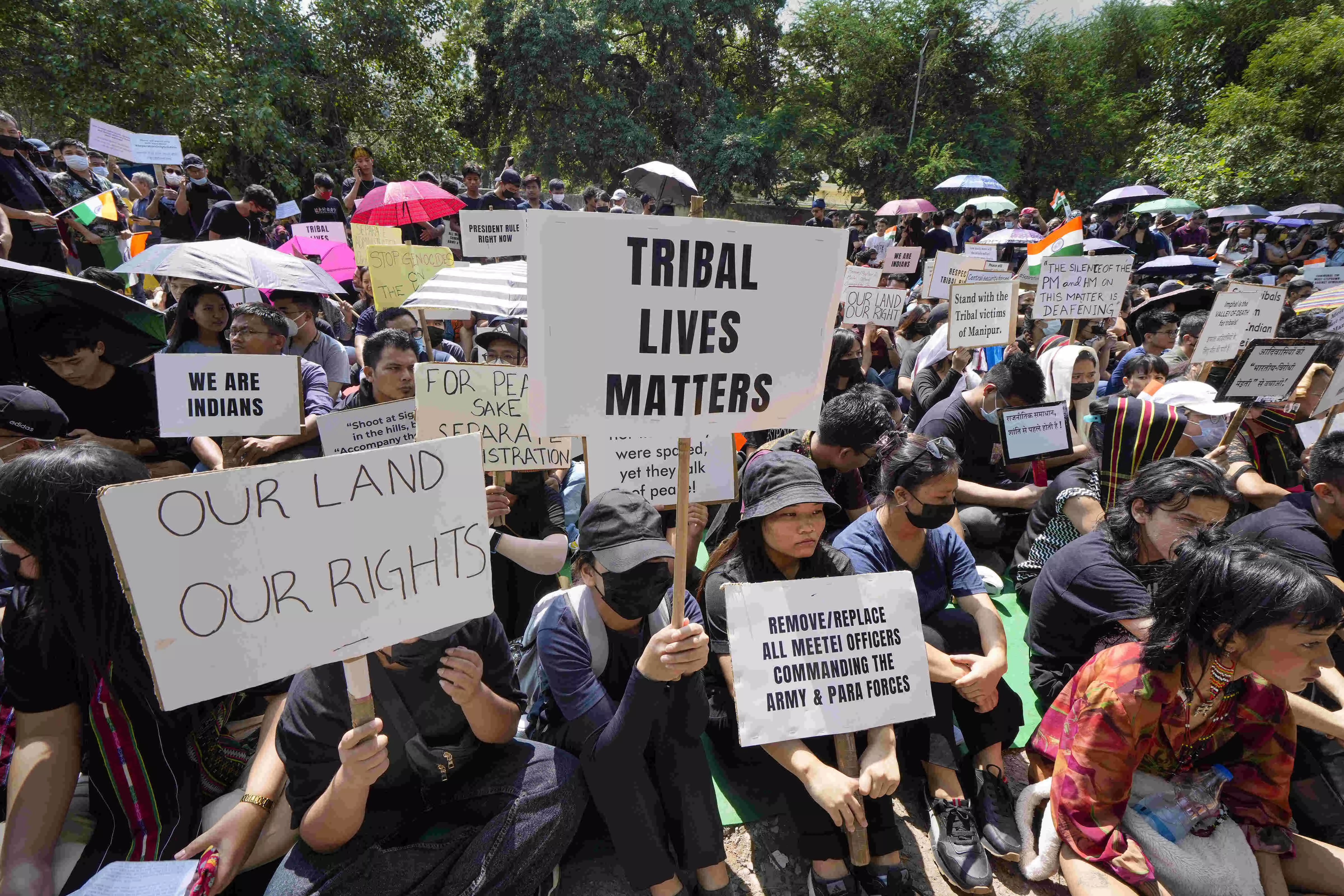Bridging the deep divide

Triggered by a Supreme Court’s directive seeking the inclusion of the Meitei community into the Scheduled Tribe list, and bolstered by the alleged bias of Manipur Chief Minister N Biren Singh in favour of the Meitei community, the ethnic conflict in Manipur has acquired wider dimensions. The members of Kuki-Zomi community, including certain well-placed BJP MLAs, have not just raised their demand for resignation of the incumbent CM but are also demanding a “separate administration.” The situation has escalated to a dangerous level, with the confiscation of arms and weapons by communities from police stations and other institutions creating havoc. Citizens are armed, and pitted against each other. This threatening confrontation is a culmination of a prolonged building up of mutual distrust and animosity. While geographical-cultural seclusion, along with socio-economic and cultural differences, are being seen as the sources of conflict, the more evil factor has been the politics of division. Manipur, at this juncture, requires trust-building efforts and a healing touch. In order to move forward, it is crucial to foster dialogue, promote inclusivity, and address the root causes of the conflict. However, the unfolding reality has been taking an altogether different turn. It can be called a pathetic state for any administration if the trust of a particular community deteriorates to a level where they are forced to take arms for the protection of their interest and existence. The government led by N Biren Singh — who, some allege, had been trying to gain political mileage by supporting Meiteis openly — is now finding itself in a difficult spot. Kuki MLAs are demanding the removal of Manipur chief minister N Biren Singh. The demand for a Supreme Court-monitored Special Investigation Team probe into “unrelented ethnic cleansing” of Kuki, Zomi, Mizo and Hmar tribes” is also gaining traction. The visit of Union Home Minister Amit Shah to Manipur demonstrates the recognition of the political seriousness of the situation. His emphasis on peace and the assurance of support from the central government is an important step in the right direction. However, it is imperative that these words are followed by concrete actions to restore law and order, foster reconciliation, and rebuild trust among communities. Apart from making calls of peace and harmony, the Home Minister also proclaimed that a judicial commission will be set up under the chairmanship of a retired Chief Justice of a High Court to investigate Manipur violence. Apparently, his appeal and announcements didn’t have much positive impact on the ground. Ensuring peace and harmony would require well-directed actions. At the root of the entire episode is the staunch political backing for the already dominant Meitei community and, contrarily, a stark vulnerability of the hill tribes who were ostensibly made to feel vulnerable on account of a range of factors. An act of rationalisation is required, which would ensure that one community doesn’t swell with political arrogance while the other starts apprehending its existence and dignity. It is up to both the state and the Central governments to create a positive ambience. Additionally, the governments must strive hard to create channels of communication that would allow both sides to sit under one roof and discuss their concerns. The grievances and concerns of all communities must be heard and addressed to foster reconciliation and promote unity. Furthermore, Efforts should be made to promote mutual respect and understanding among different communities in Manipur. Preserving and celebrating cultural diversity can contribute to a sense of unity and belonging. Socio-economic development initiatives that address the root causes of conflict, such as poverty and unemployment, are also crucial. At the top of everything, it will be interesting to see how the political and administration-related demands of the hill tribes are dealt with.



